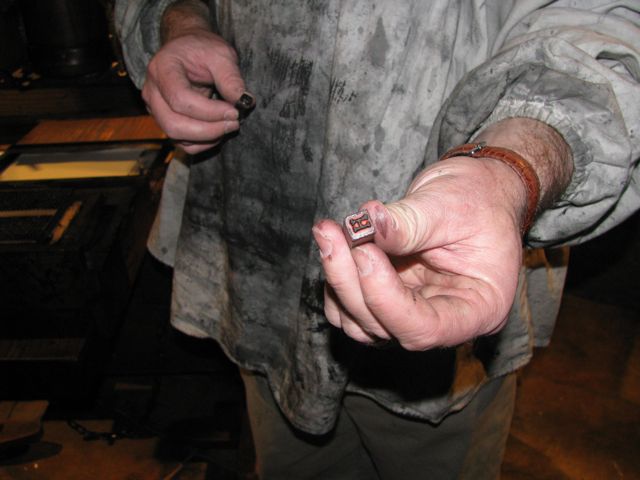We toured Passages this past Friday and saw some of the most incredible artifacts. Some of which included ancient writings found on recycled papyrus scraps that were used on mummies. Scientists had to put these through a special process to ‘unglue’ it from the mummy’s coverings. We saw torahs that were confiscated by the nazi’s in WWII, still in bags with their identification numbers attached. Some were partially destroyed. The nazis used pieces of these torahs to line their bags and their shoes which were displayed. It was shocking to see how they disgraced it.
We viewed some of the most beautiful Bibles: one of the most ornate belonged to Yasser Arafat, a terrorist. Other interesting finds: the first legal Bible printed in English; the 1st edition King James Version dated 1611, and the ‘wicked’ Bible, named because of the error in the 10 commandments, the word ‘not’ was accidentally omitted in Exodus 20:14. The gravity of mistakes was taken so seriously that Robert Barker spent the rest of his life in prison for the error.
All are in the exhibit and many more. It truly is a tremendous history of the Bible. Included is a scavenger hunt for younger children. However, I warn you, it was tough, even for adults.
You have to see Passages for yourself. My brief overview does not do it justice.

St. Jerome, a scientist, translated the original Bible into Latin; The Vulgate. He lived and translated in a simple cave that was recreated in the exhibit.
“Be ever engaged, so that whenever the devil calls he may find you occupied.” St Jerome

Michelangelo painted St. Jerome.
We try our hand at copying Latin from The Psalms.

Trying our hand at copying some Latin from the Psalms.


Photo by Jessica Brown

This law made it illegal to translate or possess any portion of the Bible. Some went as far as hiding scripture in popular works. Many were killed and burned at the stake.
Martin Luther was a priest and German monk who disputed the claim that money could purchase freedom from God’s punishment of sin. He was excommunicated because of his refusal to retract his writings.

Martin Luther nails his thesis to the door of the church and in doing so changes history with a hammer.
“Luther taught that salvation is not earned by good deeds but received only as a free gift of God’s grace through faith in Jesus Christ as redeemer from sin.” Thus began the Protestant Reformation.

Luther’s Theses


Gutenburg invents the 1st printing press with movable type. It took an entire day to tediously set the type set for one page. And over 4 years to print 200 Bibles.


Jessica presses one page.
The ink consisted of linseed oil, chimney soot, and tree sap.



Movable type

“Tyndale’s translation was the first English Bible to draw directly from Hebrew and Greek texts, the first English one to take advantage of the printing press, and first of the new English Bibles of the Reformation.” William Tyndale was burned at the stake for bringing God’s word to common people.
In 1382, John Wycliffe translated from the Vulgate to what is now known as The Wycliffe Bible.

We take for granted our dusty Bibles on the shelves and the lives that were sacrificed for simply being able to read God’s word in our own language. Truthfully and sadly, it wasn’t so simple.
The Bible has now been translated into 2,400 languages. 8 billion Bibles have been distributed; not included the millions of digital Bibles. We get more of our history from the Bible than from any other source.
It is the most studied book , the most banned, and the best seller in history.
It is the most hated and the most loved.
I have a new appreciation.
If you get a chance to go through this exhibit, Passages, I highly recommend it.
(pause music at top right)



